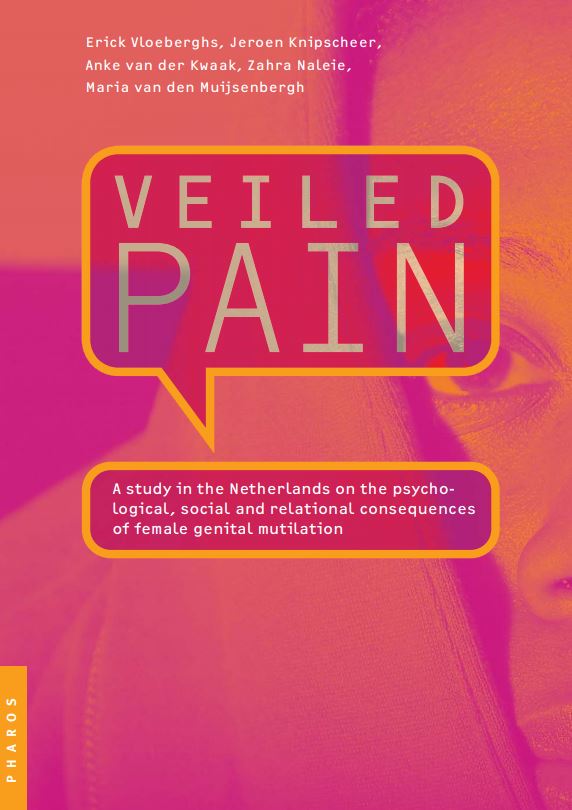Veiled Pain
A study in the Netherlands on the psychological, social and relational consequences of female genital mutilation.
Erick Vloeberghs, Jeroen Knipscheer, Anke van der Kwaak, Zahra Naleie, Maria van den Muijsenbergh

Little is known about the psychological, social and relational consequences of female genital mutilation (FGM). Researchers from Pharos, Centrum45 and Royal Tropical Institute in collaboration with FSAN (Federation of Somali Associations Netherlands) mapped the experiences of women in the Netherlands who underwent FGM/C. Ethnic similar women interviewed in total sixty-six women from Somalia, Eritrea, Ethiopia, Sudan and Sierra Leone on the psychological, social and relational consequences of their circumcision.
In Veiled Pain women talk about their anger and anxiety, feelings of exclusion and shame, and about how they cope which their pain, complaints and sorrows. Using standardized questionnaires it was found that one third of the women have feelings of anxiety or depression while one on six claims to have trauma-related symptoms due to the mutilation.
Migration to the Netherlands has a major influence on how they regard FGM/C. What once was obviously is now deviant and raises violent responses in our society. This has an impact on the perception of the consequences of the mutilation. The women spoke in veiled terms about the consequences of FGM/C on their experience of sexuality, and the impact it has on the relationship with their partner, family life and contact with others, including healthcare providers in the Netherlands. The insights from this mixed method study are particularly relevant for healthcare workers who meet with these women.
‘Impressive and readable account of a study into a painful cultural phenomenon and its consequences for women in our neighbourhood’. In: Huisarts en Wetenschap (General Practitioner and Science), 2010, (53) 10.